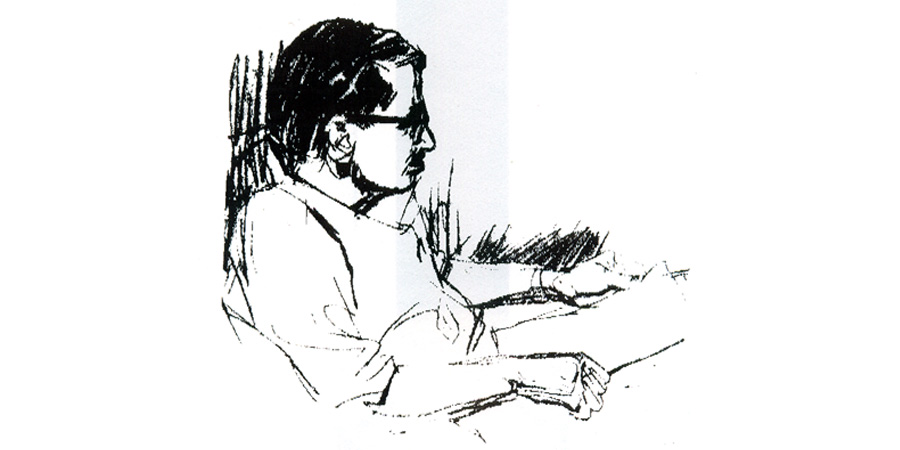Q.1. What is Integral Humanism?
Ans. ‘Integral humanism’ is an ideology that Pt. Deendayal Upadhyaya propounded and presented it before the nation and the world at large.
Q.2. What was the need of this ideology?
Ans. When our country became a free nation there was a debate going on in the country as to whether India should accept the path of Capitalism or Communism. The propounders of both these paths were European foreigners. At that time Pt. Deendayal Upadhyaya said that what is the compulsion before us to accept one of the two ideologies of the foreigners? No Indian is associated with these ideologies and these are not the products of Indian environment. Pt. Deendayal said that we should learn from our culture and history and in the light of that we should chalk out our plans for the development of our nation. We should not copy anyone.
Q. 3. But Gandhiji believed in ‘Ram Rajya’ and ‘Gram Rajya’; then where from this capitalism and socialism have come?
Ans. Quite right. After independence, we should have followed the path shown by Gandhiji but unfortunately, Gandhiji was ignored after independence and we started following the western ideologies. Pt. Deendayal opposed this all.
Q.4. What are these ideologies of capitalism and communism? Why does Deendayal Upadhyaya oppose them?
Ans. Infact, true nomenclature of “capitalism” is “individualism”. This thought believes that a human being is only an individual. This ideology does not recognize the existence of society. It believes that individual freedom is the key to all happiness. When free individuals started exploiting other weak individuals, society became unbalanced. Then a thinker of Europe, Karl Marx, said, “A real human being is not an individual but a social being.” In order to bring equality in society, individual freedom should be restricted. A man is only an ‘individual’ and not ‘society’ or a ‘society’ and not an ‘individual’. These contentious points of discussion in Europe gave rise to twin ideologies named capitalism and communism. Both of these ideologies are materialistic in nature. Both negate spiritualism. Deendayal’s first objection to these was that they were foreign theories and not indigenous. The second objection was that both were materialistic and man cannot be matter alone; he has his spiritual needs as well, and the development of both these aspects is a necessity. The third objection was that these ideologies divide human beings into “individuals” and “society,” whereas human beings should not be divided in this manner.
Q.5. What remedy did Deendayal Upadhyaya suggest to solve this riddle?
Ans. Deendayalji said that the Indian tradition of thought, which includes Gandhiji also, does not divide “individual’ and ‘society,” nor does it recognize an individual as a material being only.
Q.6. Then what is the concept of a “man” in Indian tradition?
Ans. Indian tradition considers human being as integral entities. “Integral” means that which cannot be divided. A unit that is indivisible is called integrated.” Society and individuals are so intertwined that they cannot be separated. Every human being is an integral part of society. He cannot live with or without a family. A family cannot live without a village, city, or neighbourhood. Beyond village and cities, the units of a nation and the world exist. An individual is part of all these collectivities and is not independent of them. An integrated human being’s happiness is not divided into individual and societal happiness; rather, it is integral.
Q.7. Do the “individualists” and “socialists” not accept these things?
Ans. Yes, individualistic thinkers regard society as an obstacle and thus advocate freedom of the individual and the Socialists consider individuals greedy and want to exercise social control over them. Deendayal Upadhyaya says, “Man” needs freedom and equality at the same time. It is folly to consider freedom and equality as opposed to each other. They should be considered complementary.
8. What else does Deendayal Upadhyaya say?
Ans. “Man” is not only integrated in society, he is also an integral part of this world of nature. Thus, if he misbehaves with nature, he will come to grief. In Indian tradition, they are worshipped as “mother”. Polluting nature is a sin. This universe does not constitute human beings and society alone; a man should learn to behave in accordance with nature.
9. It sounds good. Do Western ideologies accept this?
Ans. They wish to conquer nature. By exploiting nature to the maximum, they have put the happiness of human beings in great perile. Materialism and consumerism are part of their ideologies.
10. What is the Indian point of view in this regard?
Ans. Pt. Deendayal opines that India considers spiritualism an integral part of human existence. This is the word of sensitivity. India does not worship any single form of God, nor does it follow a single way of worship. Rather, varied forms of spiritual refinement have been cultivated here. That is a reason that the ideas of one soul permeating all the living beings, ‘kindness for all living beings” and “non-violence’ have grown here. Deenday Upadhyaya considers spirituality as part of human integralism and believes that ignoring this will be dangerous. In order to understand ‘Integral Humanism”, we should go through the literature written by Pt. Deendayal Upadhyaya.
(Source: Integral Humanism: An Analysis of Some Basic Elements)


